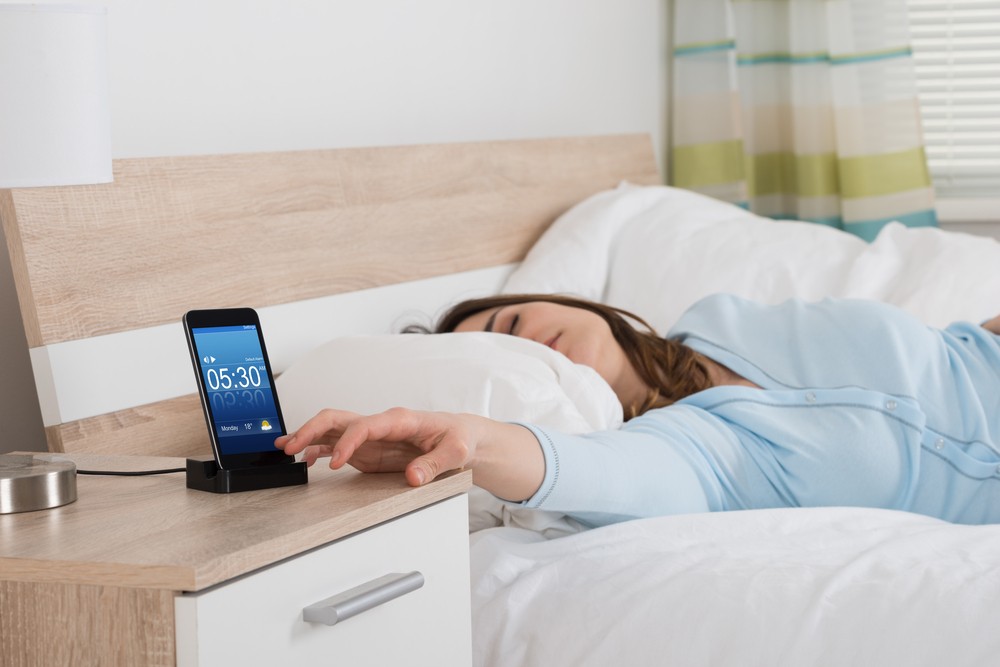Popular Reads
Top Results
Can't find what you're looking for?
View all search resultsPopular Reads
Top Results
Can't find what you're looking for?
View all search resultsFeeling sleepy all day and other signs of sleep apnea
If it’s left untreated, people with sleep apnea can stop breathing in their sleep, which could lead to more serious health concerns and risks.
Change text size
Gift Premium Articles
to Anyone
S
leep apnea is a common sleeping disorder that occurs when a person’s breathing is interrupted during sleep. If it is left untreated, people can stop breathing in their sleep, which could lead to more serious health concerns and risks.
Check out Reader’s Digest’s list of common sleep apnea symptoms that you may be ignoring.
You feel sleepy all day
Sometimes, your busy life isn’t the reason you’re tired all day, every day.
Patients who suffer from sleep apnea wake up frequently throughout the night, making daytime sleepiness one of the most common sleep apnea symptoms. It is commonly ignored or blamed on a busy life because sufferers don’t always remember waking up throughout the night.
Both obstructive sleep apnea (muscles relax during sleep, causing soft tissue in the back of the throat to collapse and block the airway) and central sleep apnea (the brain fails to signal your body to breathe) lead to disrupted sleep, according to sleep professionals.
Waking up with a headache
If early morning headaches are becoming more frequent, it may be your lack of sleep caused by sleep apnea catching up on you.
Even if you’re getting seven to eight hours of sleep and still waking up feeling less than average, this could be an alarm bell to go and visit your doctor. Sleep apnea disrupts even a full night's sleep, with severe patients awakening hundreds of times in a night, according to the United States-based Stanford Center for Sleep Sciences and Medicine.
Read also: Nine sleep myths debunked
More night-time trips to the bathroom
Sleep apnea sufferers may think they’re waking up frequently through the night because they need to pee.
The truth is, when patients find themselves awake in the middle of the night, they blame it on an urge to pee. Chances are, the person doesn’t usually need to go, it’s just the body searching for a reason to be awake.
You’re feeling irritable or have mood swings
Sleep apnea may be the reason you’re feeling snappy or irritable over life’s minor inconveniences.
Studies show that people who are suffering from lack of sleep feel more stressed, angry, sad and mentally exhausted, according to the Division of Sleep Medicine at Harvard Medical School.
If you’re experiencing increased stress and anxiety over problems that wouldn’t normally worry you, it might be time to pay your doctor a visit.
Your driving is getting worse
Did you know that people with sleep apnea are 2.5 times more likely to be the driver in a car crash than people without the disorder?
A study in the journal Sleep concluded that one of the biggest signs of sleep apnea is car accidents. Extreme daytime sleepiness can lead to dangerously distracted driving, putting both sleep apnea sufferers and other drivers in extreme danger.
Unexplained weight gain
Feeling a little tighter in your clothes? Sleep apnea could be the answer.
Experts say that the hormones that regulate feelings of hunger function at very specific times during the sleep cycle. If the sleeping cycle is regularly interrupted, this can interfere with the hormones that make you feel hungry throughout the day.
Lack of sleep often leads to sufferers feeling hungrier throughout the day and may make an individual more insulin resistant, which could lead to more serious health issues, including diabetes.
Trouble being intimate
In men, impotence is a common sign of sleep apnea, which is often blamed on low testosterone or stress.
Studies have found that people with erectile dysfunction are more than twice as likely to have sleep apnea alongside it. (geo/kes)











